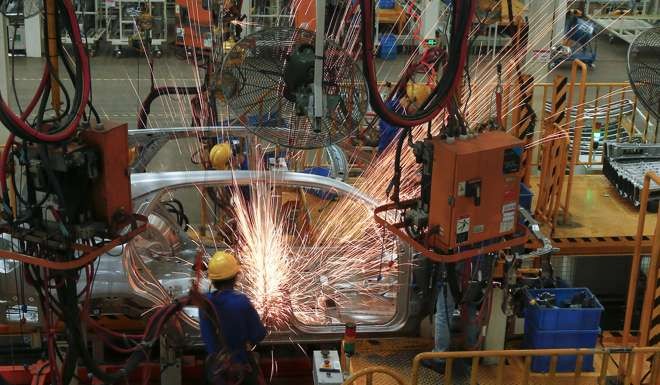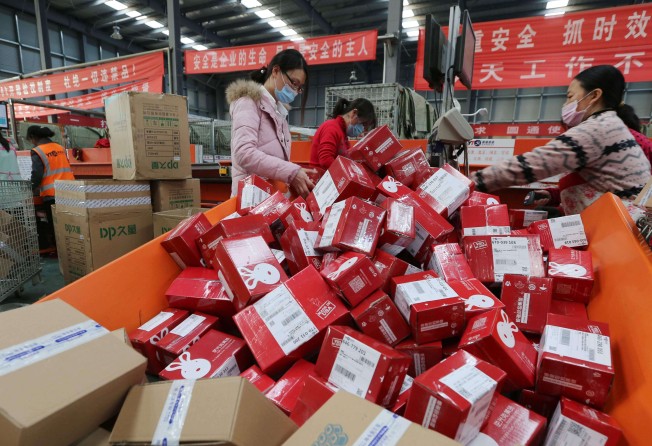
China’s biggest companies tipped to lead the economy’s digital transformation
‘You might need 10 to 20 more Jack Mas to create this China of the future,’ says Accenture senior executive

China’s efforts to become a world-leading digital economy will ultimately depend on how fast its largest companies can scale up and transform their businesses with more digital skills, technologies and activities, according to a senior executive at Accenture.
“You might need 10 to 20 more Jack Mas to create this China of the future,” said Gianfranco Casati, the group chief executive for growth markets at Accenture Strategy, a unit of global consultancy Accenture.
Casati said the nation’s annual Singles’ Day, the world’s largest online shopping festival, is already “a symbol of how fast China is going digital”.
Alibaba Group, led by founder Jack Ma Yun, turned what started as a peculiar local holiday to celebrate being single on November 11 into a 24-hour event promoting online sales, which helped ignite e-commerce expansion across the country.
“Singles’ Day is the manifestation [of digital transformation] in the consumer market,” Casati said. “But underneath is a robust infrastructure, in which cloud has become a big factor, that shows how the digital industrial revolution will take place in China.”
New York-listed Alibaba, which owns the South China Morning Post, estimated that its cloud computing operation, Alibaba Cloud, processed 175,000 orders per second at the peak of its “11.11” shopping promotion.
About US$17.8 billion worth of gross merchandise volume was settled through its online payments platform Alipay. Cainiao Network, the logistics affiliate of Alibaba, processed more than 657 million delivery orders placed on the e-commerce giant’s China and international online retail platforms.
“But Singles’ Day is just the tip of the iceberg for an entire country’s digital transformation,” Casati said. “The likes of Alibaba and Tencent need to expand their core operations to become 10 times bigger than what they are today.”

The central government has prioritised the reform of large state-owned enterprises, the “informatisation” programmes under the 13th Five-Year Plan and the One Belt, One Road initiative to help buttress China’s digital transformation efforts.
Jefferies equity analyst Edison Lee said in a report last week that informatisation -- a term that refers to telecommunications, media and technology -- under the Five-Year Plan targets accelerated high-speed network roll-out in China’s rural areas and concessionary rates charged to low-income users of telecommunications services.
Casati said China’s aggressive development policies will enable it to closely compete with the United States, which Accenture has described as “the world’s most digital economy”, over the next 20 years.
Accenture last year forecast that China would add US$527 billion, representing a 3.7 per cent boost, to its gross domestic product -- the total value of goods and services produced in a country -- by 2020. This is based on an estimated 12.5 per cent growth in the country’s digital economic activity, up from 10.5 per cent in 2015.
“That estimate may be conservative,” Casati said.
Research firm IDC predicted in November that half of China’s top 1,000 companies will see their businesses increasingly depend on “digitally-enhanced products, services and experiences” by 2020.